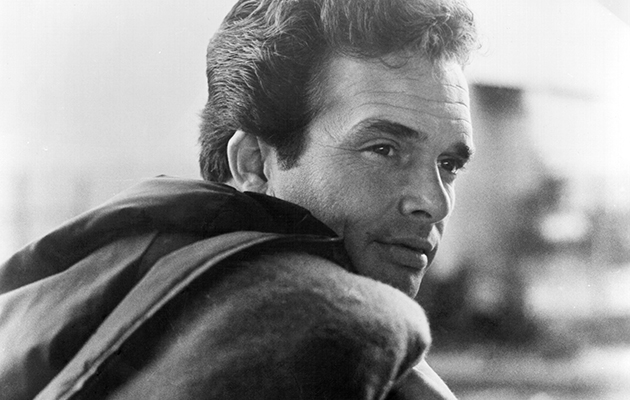Haggard served three years in San Quentin for attempting to burgle a restaurant while drunk. He was paroled in 1960 – and formally pardoned by then-governor Ronald Reagan in 1972 – but returns to the penitentiary often on record. In the opening track of I Am What I Am, the wryly nostalgic “I’ve Seen It Go Away”, he remembers a country he has “Seen in its pride and all its glory/And I’ve seen it through the bars on a dark and stormy day.”
“Mmm-hmm,” he acknowledges, pursuing the pancakes around his plate with a fork. “And I hate to say this, but politically speaking, there was more freedom in San Quentin when I was there than there is in the streets of America now.”
This seems a bit of a stretch.
“Everything you did this morning,” he insists, “has been recorded on film. That wasn’t the case in prison when I was there. They might as well put a wall up: they’ve got us all under surveillance. In jail at the time, you could play poker 24 hours a day if you wanted to. Now, you can’t even smoke. What a world we live in. You can’t smoke in a pool hall. What has happened?”
This question vexes Haggard throughout his new album, and throughout our conversation. Some of his political outlook is orthodox libertarianism – “People just want a cheque in the mailbox and they don’t want to do anything for it – what’s that about?” – and it must be conceded that Haggard is more entitled than most to a belief that people can work themselves out of unpromising circumstances. Some of it meanders into wilder, somewhat weirder territory – he perceives grim significance in the fact that many of the pharmaceuticals which Americans pop in absurd quantities are made in “…fuckin’ Germany. So who won the war?” Mostly, though, he just sounds disappointed. In the same song, he recalls Bob Wills and Elvis Presley, and notes that “When you’ve seen the very best, the rest can’t hardly play.”
“Those are just two that I picked out,” he says. “But I’m sure that they’re won’t be another Muhammad Ali in our time. And even though some people have hit more home runs than Babe Ruth, they still didn’t surpass the legend. Babe Ruth is still the greatest ball player who ever lived, when all the cards are in and all the chips are counted. Those kind of people are an example of what I’m trying to say there. I believe that we’ve seen the best on this planet. I don’t think we’ll ever get any better.”
Isn’t that just what getting older feels like for everyone? Perceiving everyone’s possibilities dwindling along with your own?
“Maybe,” he allows. “I’m not real comfortable with it. But I suppose there are benefits to it. If you’re a student of life, you continue to learn, and you finally become a wise old bird, you know? I’ve accepted it, I guess, though not without a fight.”
It can’t make the process any easier when you are, yourself, often cited as evidence that they no longer make them like they used to. On George Jones’ 1985 hit “Who’s Gonna Fill Their Shoes?”, a heroically maudlin elegy to a disappearing creed, the second verse mourns (somewhat prematurely, in all three cases) the “Red-Headed Stranger”, the “Man In Black” and the “Okie From Muskogee”: Willie Nelson, Johnny Cash, Merle Haggard.
“I believe that’s right,” says Haggard. “I believe they’re as original as any diamond, or any fingerprint. They can only be imitated, they can’t be duplicated.”



